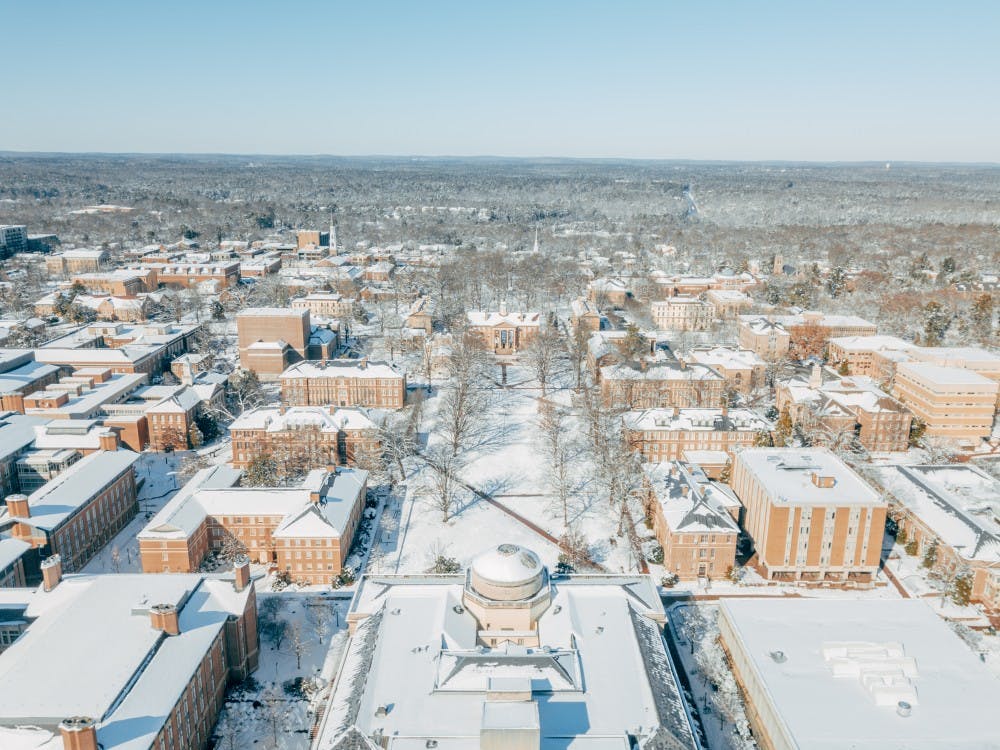As snow covered the University last week, students across campus frolicked in the absence of classes. But for some, the wintery weather didn’t mean time off, as the University remained in Condition 2: Suspended Operations — where classes are canceled, but the University remains open for mandatory operations. This means some workers, like employees of Carolina Dining Services, must still report to work.
“The safety of our students, faculty and staff is our number one priority in making any weather-related decision about campus operations,” Kate Luck, a University spokesperson, said in an email. “Regardless of the condition the University is operating in, we encourage all our employees to use their best judgment about their ability to travel safely to and from campus and to work with their supervisor if they have any concerns.”
But somebody has to feed all of those hungry kids.
Scott Weir, the general manager of CDS, said he reviews the procedures every December to ensure the dining halls are always able to feed students while also keeping his staff safe.
“CDS provides transportation and housing as necessary throughout adverse weather events to facilitate needed staff being able to come to work,” Weir said. “For this most recent adverse weather event, we housed employees in local hotels on Tuesday night in advance of the storm to ensure we would get Chase Hall open. We have continued to shuttle and house CDS employees this week.”
Ann Lemmon, the assistant provost for human resources, said there’s an important distinction between faculty and staff when it comes to working in adverse weather.
“If you’re in landscaping and maintenance, you know you’ll be designated a mandatory employee, but for a faculty member it depends on if they're doing research and the type of research they’re doing,” Lemmon said. “For example, does their lab have a study that requires daily measurement or are there animals that need to be tended to? But if you’re a doctor, like an OB-GYN, the clinic may be closed but somebody still might have a baby.”
Weir said the dining service uses an incentive program to ensure enough employees are working during adverse weather conditions, in addition to overtime pay for any hours worked over 40 during the week. But Weir believes even if dining hall employees weren’t getting these benefits, many would still choose to come to work. He said they feel blessed to work with such a dedicated dining staff.
“We have employees with tenures over 40 years with CDS and our average tenure is more than five years, which is unheard of in the restaurant business," Weir said. "I believe a significant driver of that tenure and our staff’s high level of engagement is their dedication to the students. Our staff embraces the notion that college is hard, and harder than average at Carolina, and that CDS’s ability to make food easy can make a difference in a student’s day, week or even academic career.”



